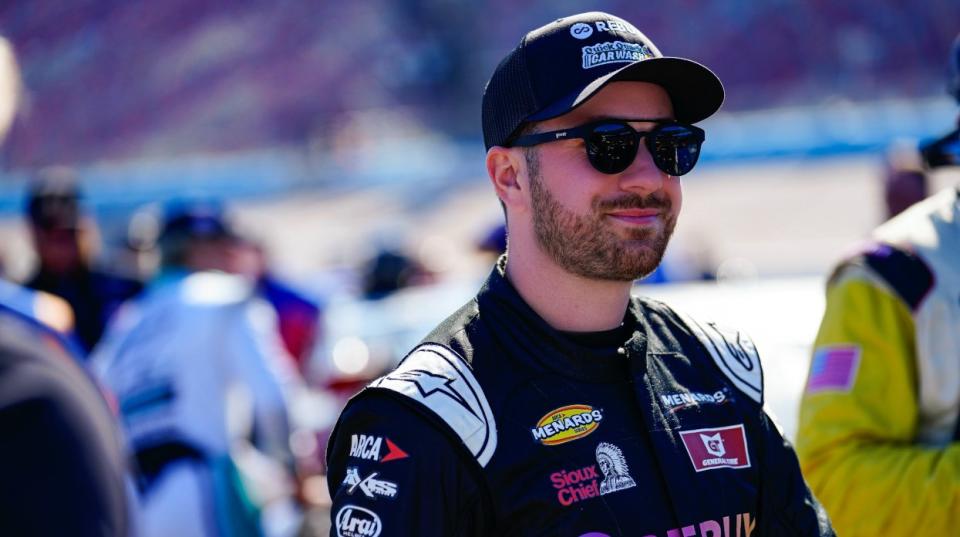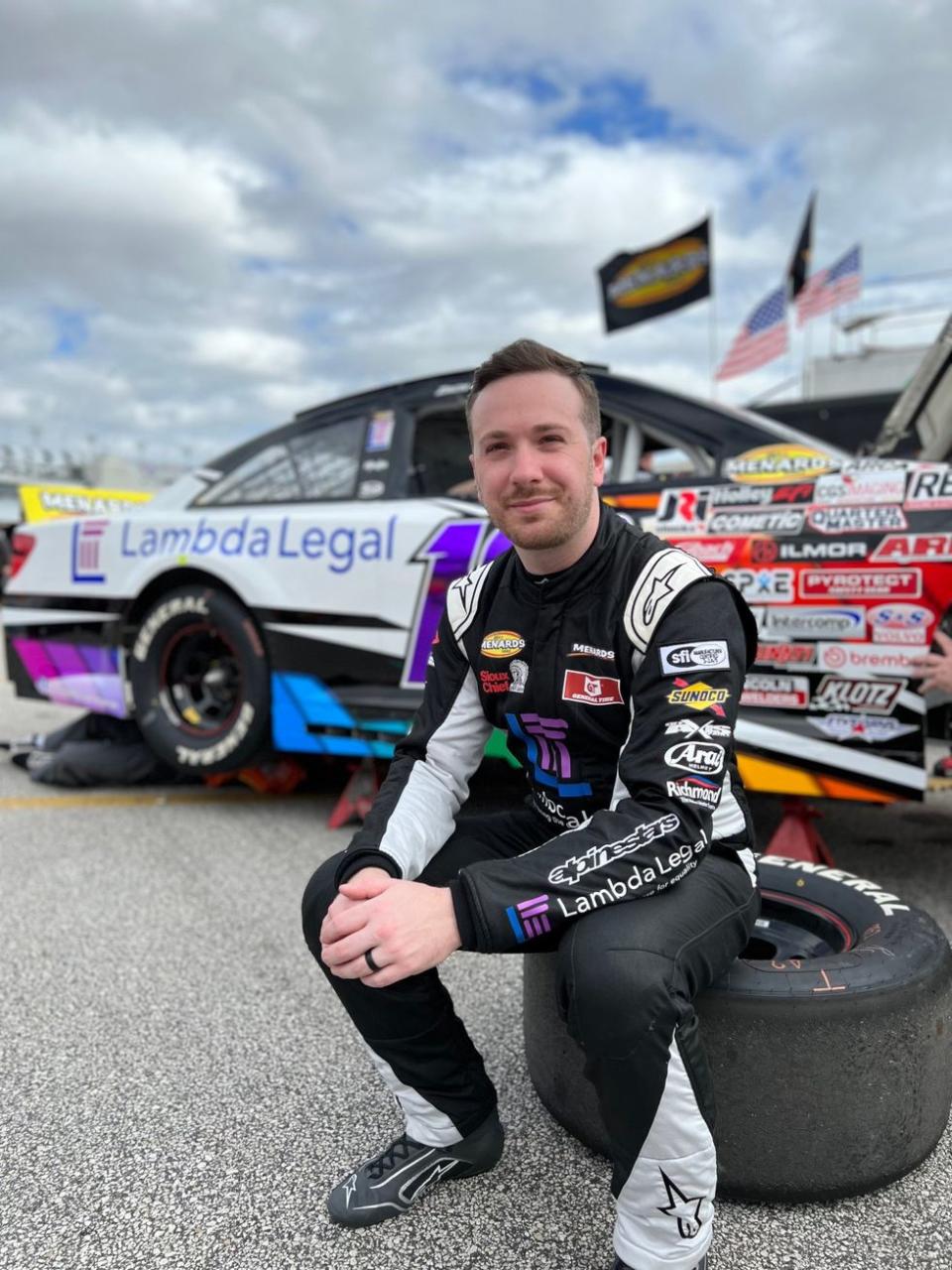NASCAR Racer Zach Herrin Wears His Gay Identity Proudly

When out NASCAR driver Zach Herrin recently returned to the track after a 10-year absence, corporations weren’t exactly knocking down his door to slap their logos on his racing suit. Even though his team has conversations “all day, all week, every month, all throughout the year” with various brands, they were constantly told Herrin doesn’t “fit” within the multimillion dollar marketing budgets of the companies.
This challenge wasn’t new for Herrin — auto racing isn’t known as the most inclusive of sports. Still, Herrin loves racing after being “practically raised on the track” and managed to turn a weekend hobby with his father into a career. Herrin also wanted to emulate his big brother, Josh, who became one of the few Americans to have competed in MotoGP's Moto2 World Championships at a professional level.
“I was able to follow in [Josh’s] footsteps to determine what it would take to get to these levels,” Herrin says. “And my parents knew what it would take, as well, which ultimately led me to achieve that goal to start racing professionally at 16.”
Not long after taking the leap into the professional world, however, Herrin couldn’t deny there was “something different” about him, and something he’d never allowed himself to focus on while he’d kept his sights on his racing goals.
“I had this part of my identity that I was just kind of pushing to the side,” he said. “The motorsports industry can be pretty one sided at times, not very welcoming to all topics of gender, religion, sexuality, whatever it may be. It’s pretty much, ‘This is it, this is what motorsports is and what it’s supposed to be. If you don’t fit in, get out.’”
Although he’s long known NASCAR and its fans skew very conservative, Herrin slowly realized he wasn’t compatible with the closet.
“[Coming out] ultimately led me to walk away from everything we had worked toward,” he said. “I had felt happier making that decision. I was able to come out to my family and friends. And through this period, I’ve been able to grow this part of my identity, trying to express myself and how I want to be perceived in today’s world as a gay man.”
After nearly a decade away from the track, Herrin made his professional NASCAR debut in November. At the time, what was meant to be a multi-season partnership with a big brand fell through, taking him from multiple races to almost none in a blink, which left him feeling more than a little discouraged.
For the new season, Herrin teamed up with Lambda Legal, the oldest and largest national LGBTQ+ legal organization. Herrin initially reached out to the CEO, Kevin Jennings, who was reluctant at first about sponsoring him. Herrin stayed in contact, particularly tracking the work Lambda was doing to fight against Florida’s “don’t say gay” bill, which severely limits the discussion of LGBTQ+ issues in the state’s public schools. When Jennings discovered the first race of the season was in Florida — at the legendary Daytona International Speedway — he agreed to team up with Herrin and make a bold statement — showcasing one of NACAR’s only out drivers at one of the biggest races of the year in a state fighting against LGBTQ+ rights. On his uniform and car, Herrin proudly wore the Lambda Legal logo and spoke to media about Lambda’s mission and the dangers of “don’t say gay.”
“Lambda Legal is very proud to sponsor and partner with Zach Herrin Racing for 2023,” Jennings says.

“Zach represents such a positive role model for the full participation of LGBTQ+ people in sports on the national stage, while our community is facing more than 300 unconstitutional legislative proposals across the country. While we aren’t disclosing the financial details of our partnership, we can say that even high-profile LGBTQ+ athletes unfortunately do need financial support to run their race…Partnering with Zach represents a priceless opportunity to reach the general public and help them understand the cost of these attacks from state legislators across the country. And we hope that LGBTQ+ Floridians — especially young people, who have been targeted by Florida’s notorious 'don’t say gay or trans' law and efforts to ban all gender-affirming care — will be proud to find themselves represented on the track at Daytona.”
Herrin is leaning into his role as a role model for young LGBTQ+ people, especially those trying to break through in industries historically hostile to the community.
“I’m learning the struggles of LGBTQ+ people within the motorsports industry in NASCAR that have always been here, but I’ve never been able to connect with them,” he says. “Hearing the challenges that they’ve faced when they’ve gone to a race in the past, and it was a terrible experience for them, and they haven’t gone back since.”
Herrin commends NASCAR as a brand and corporation for “doing the right things” as of late — last year the organization released Pride merch (“Yascar,” NASCAR’s account tweeted) — but he says it still has room to learn.
“I hope that with time, and maybe with me helping bridge this massive community now, that this [outreach] is going to continue,” he says.

 Yahoo Autos
Yahoo Autos 